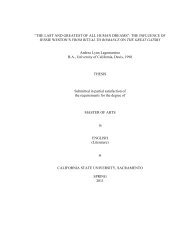COMMUNITY ACTIVISM IN OAK PARK: COMPETING AGENDAS ...
COMMUNITY ACTIVISM IN OAK PARK: COMPETING AGENDAS ...
COMMUNITY ACTIVISM IN OAK PARK: COMPETING AGENDAS ...
You also want an ePaper? Increase the reach of your titles
YUMPU automatically turns print PDFs into web optimized ePapers that Google loves.
Often times, when these programs fail in helping the poor, the lower-income are<br />
blamed for their inability to change their own social circumstances. In the aftermath of<br />
both finished and unfinished gentrification and urban renewal projects, the poor are often<br />
left to fend for themselves in a changing environment. The poor are then perceived as the<br />
creators and facilitators of their own social problems. Steadily, the poor are being<br />
presented as a mere aggregation of personal cases and are increasingly severed from the<br />
society, economy, and polity that in fact determine their social circumstances (Wacquant<br />
and Wilson 1989:9).<br />
Initiatives created to solve community problems can be characterized as<br />
epiphenomena, in that they are usually created after middle-class residents move into<br />
neighborhoods and notice social problems. Reform follows crisis, and whether the<br />
reform is political or economic or physical revitalization, reform efforts seem to only<br />
occur after neighborhood deterioration has become pronounced (Hanson 1986:101).<br />
Community problems, for the most part, have long been occurring in low-income<br />
neighborhoods before initiatives to improve the quality of life for residents are<br />
introduced. Hanson (1986:101) further explains that<br />
The hardest thing to achieve in the urban polity is prophylactic<br />
action and transformative leadership in time to facilitate a smooth<br />
transition from one state of affairs to another. Projects to revitalize<br />
communities occur after a neighborhood has deteriorated, and not<br />
usually while they are in the process of deteriorating. This is<br />
because institutions are, by definition, ways of thinking and acting<br />
that are embedded deeply in the collective experience of those who<br />
make them up.<br />
The middle-class, who are the creators of community groups and the drivers of urban<br />
renewal projects, don’t usually perceive there to be community problems until they affect<br />
126



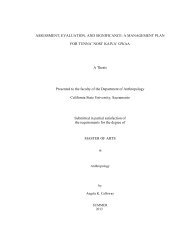
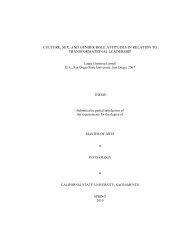
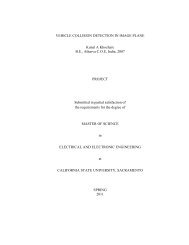
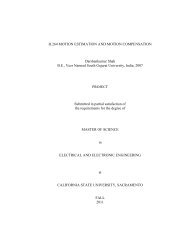
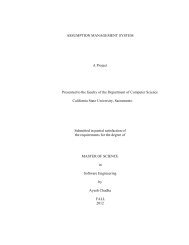
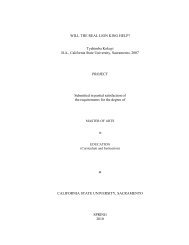
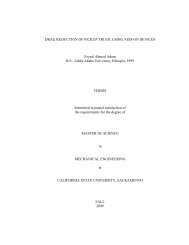
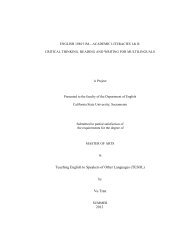
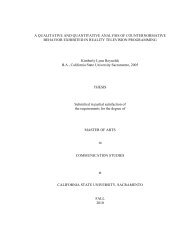
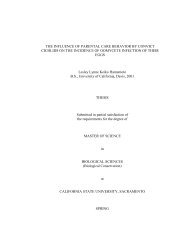
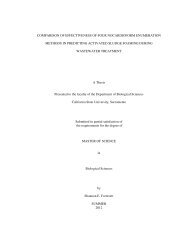
![Completed Thesis to Grad Studies[Final3].pdf](https://img.yumpu.com/17538645/1/190x245/completed-thesis-to-grad-studiesfinal3pdf.jpg?quality=85)
